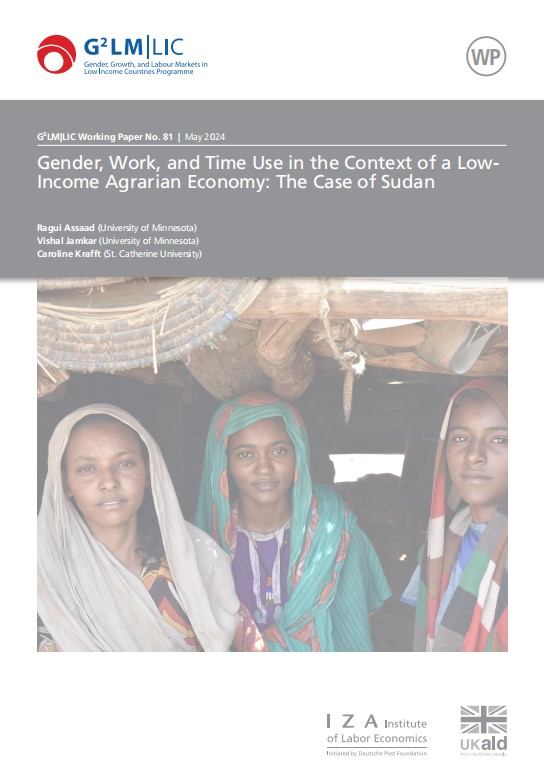Sudan is a primarily agrarian economy. Formal employment or even wage employment comprises a relatively small proportion of the productive activities in which individuals engage. In this paper we examine the broad spectrum of involvement in economic work activities by gender, including wage employment, self employment and unpaid family labor, both in activities for the purpose of pay or profit (employment) as well as in subsistence activities. Along with gender, we assess the variation in work patterns by urban/rural location, education, and marital status. Given the agrarian nature of Sudan’s economy, we delve in more detail into the gender division of labor in agriculture, including participation in crop production, animal rearing, and other agricultural activities, distinguishing between primary roles and support roles in these activities. We end the paper by looking at the interplay between work and other time uses such as paid and unpaid care work and the gender division of labor in time use.

Gender, Work, and Time Use in the Context of a Low-Income Agrarian Economy: The Case of Sudan
- Ragui Assaad
- Caroline Krafft
- Vishal Jamkar